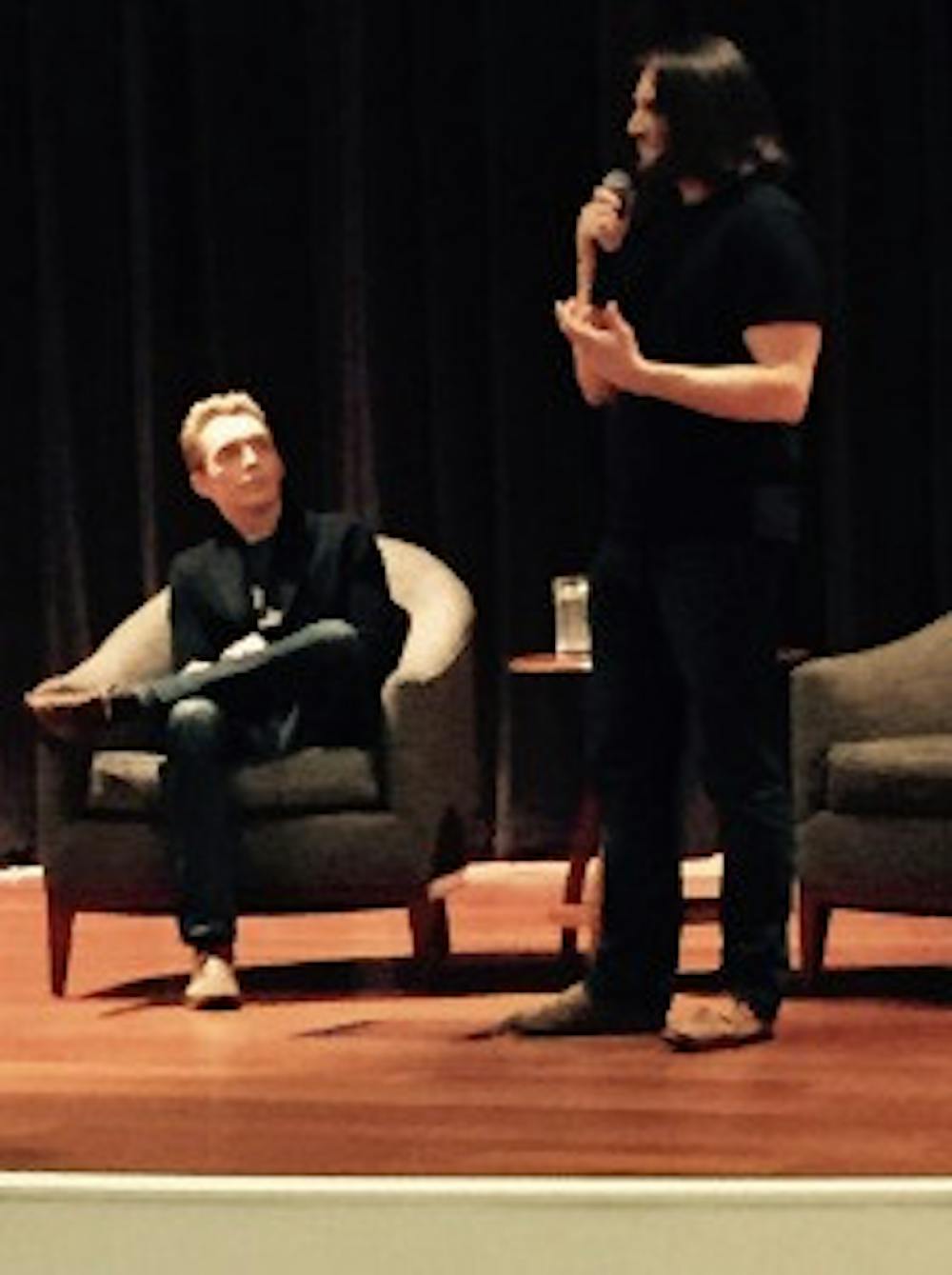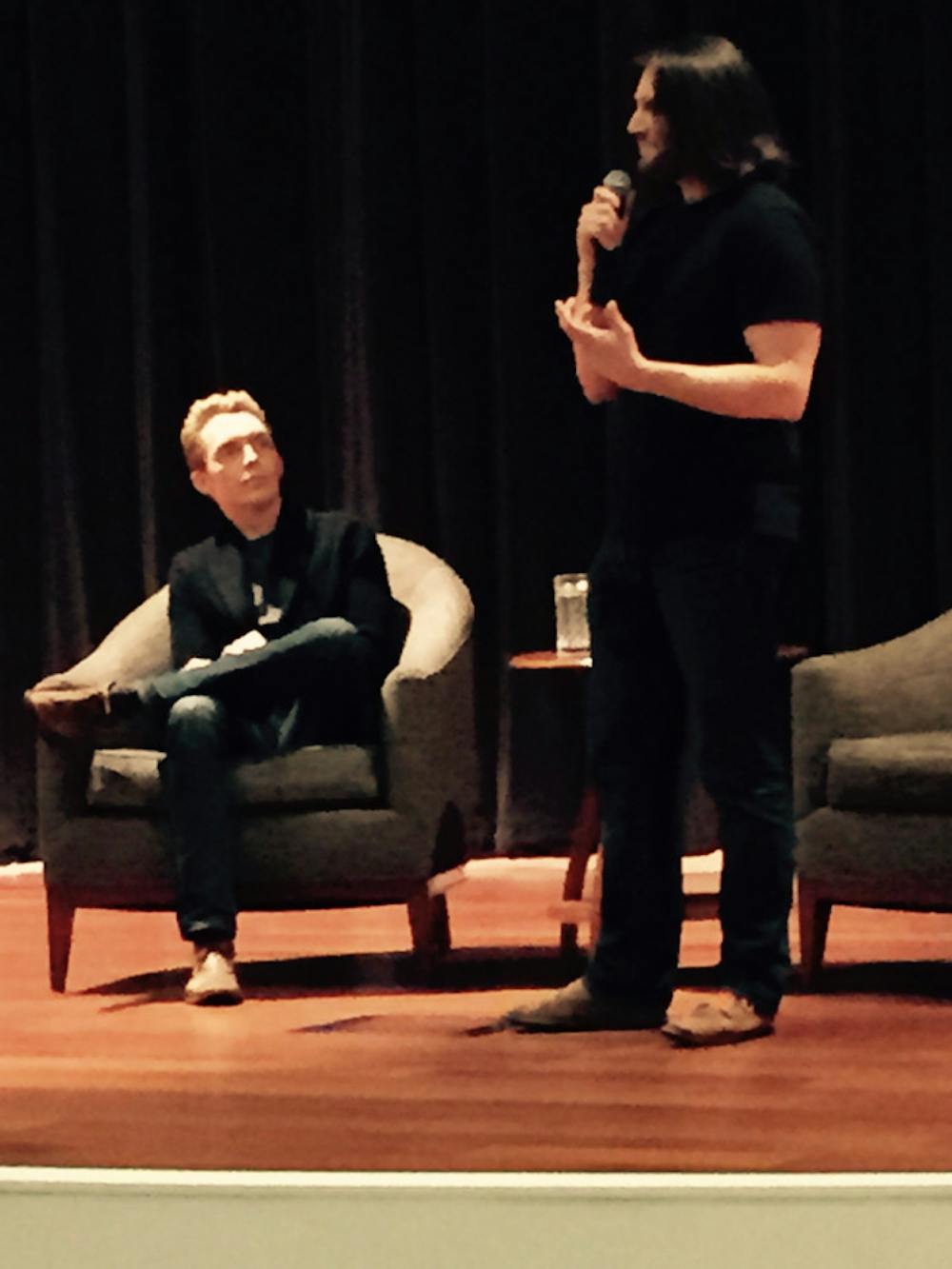
“Imagine your life in one year,” began Ryan Nicodemus, addressing a group of Miami University students, faculty, and staff, as well as members of the Oxford community at an event Monday March 2 sponsored by the university’s largest environmental organization, Green Oxford.
Less stress, less negativity, less junk; more free time, more energy, more positivity. These constitute a happy life, a minimalist life, according to Nicodemus and long-time friend, Joshua Fields Millburn. The two quit their six-figure corporate careers in pursuit of more deliberate, purposeful lives and are now known as The Minimalists.
After struggling to achieve an unattainable happiness through consumerism and climbing the corporate ladder, Nicodemus realized no matter how successful he was, he still was not happy.
“I may have looked successful, but I certainly didn’t feel successful,” Nicodemus said. “My life lacked meaning, purpose, passion.”
He asked pal, Fields Millburn, who had recently seemed much more content, what had changed to cause a shift in his attitude and Fields Millburn introduced him to the idea of minimalism, which he had slowly been working toward for the past couple months.
Nicodemus, intrigued by the idea, held what he called a “packing party” in which he, with the help of Fields Millburn, packed up all of his belongings into boxes and for three weeks only took from the boxes the necessities. By the end, Nicodemus said 80 percent of his belongings remained boxed up. Instead of feeling deprived of his material things, he felt his life was suddenly richer than it had ever been.
For the duo, who now live in Montana and have written several books on the subject of minimalism, as well as a blog, minimalism has freed, rather than restricted them. Whereas many unfamiliar with the lifestyle may think it necessary to prescribe to a certain set of rules, Fields Millburn and Nicodemus argue that minimalism is highly individualistic: different circumstances require different needs. No magic number of possessions can earn someone the title of minimalist, it’s all about deliberately purchasing and using goods that bring value.
“I don’t think consumption is the problem,” Fields Millburn said, “I think compulsory consumption is the problem.”
The Minimalists stressed purchasing with a purpose – will this item add value to my life? Is this something I will use often, if not daily? Is this an item I could live comfortably without? By asking these questions, life becomes more intentional.
From the art of Feng Shui, and other traditions of ancient Chinese medicine, clearing out clutter has always been thought to have health benefits. Clutter not only refers to physical clutter, but also digital – email, Word documents – and mental clutter.
Minimalism is a growing lifestyle trend, as evidenced by the tiny house movement and other similar movements to reduce human’s environmental footprint. It resonates with environmentalists who want to live a less wasteful life, as well as with those working toward leading a life with purpose.
Fields Millburn and Nicodemus see the movement continuing to grow in the future, and continue going on tour to speak about the Minimalist life as well as their books. They recently filmed a documentary highlighting people from all walks of life who pursue minimalism.
The Minimalists embody the adage, “less is more,” and task their global audiences to imagine their lives in one year, not rich with money and frivolities, but rich in passion and purpose.
Less is More

